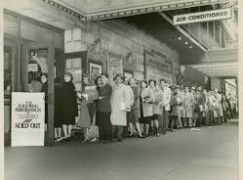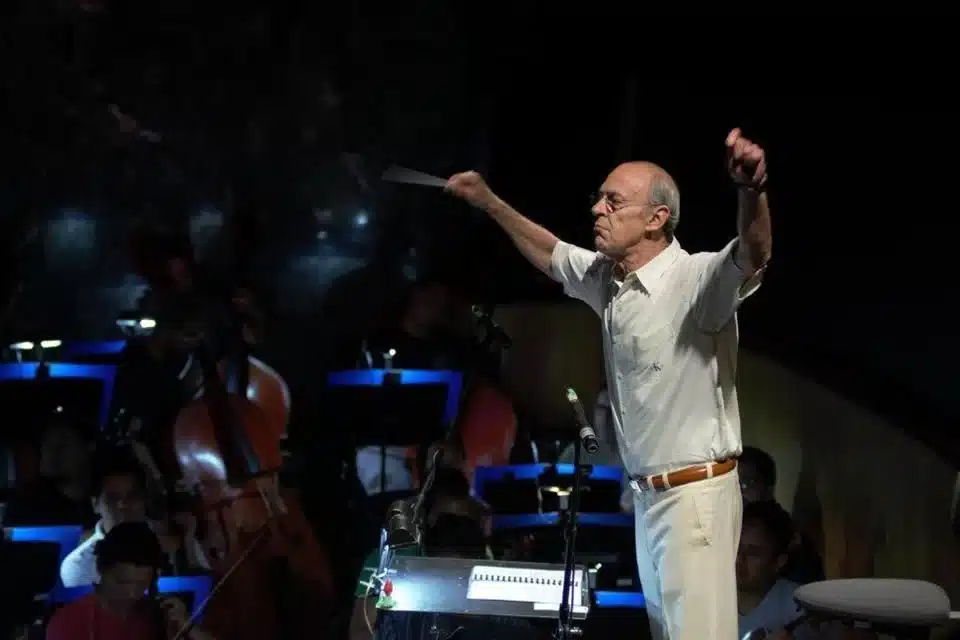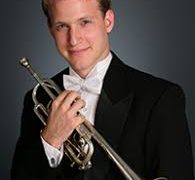Is there life left in subscription concerts?
mainThe December issue of the German magazine Das Orchester presents three contrasting viewpoints on the prospects for subscription series. In the US, the model is on its last legs as concertgoers shift to last-minute purchases.
In Europe, according to Das Orchester, it has always been resented as an American gimmick and is now dying in many cities, except for Berlin where late tickets can be hard to land.
So what’s next?
You’ll have to buy a copy of Das Orchester. The content is not online.






“In Europe, according to Das Orchester, it has always been resented as an American gimmick”
Not as common as in the US perhaps, but I believe the Halle/Barbirolli concerts at St George’s Hall, Bradford, were subscription.
Many since.
That is true, Maria, but the term ‘subscription’ as it applies to those Bradford concerts means that the concerts are contingent upon people subscribing and may not take place if they don’t. I suppose the crowd-funding idea is a similar concept. But, first, the subscription business model means that the ‘product’ is only available to those who subscribe. That again is not the same as the path taken by so many orchestras in the U.S. and in Canada, and emulated by some in Europe. This idea is that orchestra boards and executives push for the goal of 100% subscription to ensure, theoretically, financial stability, although that does not mean that the concert series will not otherwise take place, nor that only subscribers have access to it.
What it does mean is that orchestras have landed in trouble because their executives have disdained single-ticket sales. When the CEO of the Vancouver Symphony Orchestra resigned as the orchestra verged on bankruptcy in the early 90s, she said that lack of single ticket sales were to blame. Yes, indeed, for the Board and she had nixed the idea of even advertising single-ticket prices in their season calendars when this failure was brought up to them a couple of years before. “We want 100% subscription” was their mantra. That it doesn’t work has now come home to many other orchestras.
And their executives deserve their comeupance, though it’s rarely they who suffer. The 100% idea has broader implications. In the Vancouver place, if that were achieved, it would mean that the orchestra would be subsidized by government and others for the benefit of circa 3000 people, for subscribers tend to renew. In truth, there is often a plethora of empty seats because subscribers don’t attend all concerts, because banks of seats are bought by corporations lest a VIP guest wants to attend a concert, because they never achieve that 100 %, because others don’t know they can buy single tickets. They fail, but at the same time most decidedly promote classical music as elitist and discourage those who just want to see/hear what it’s all about — and there many, many such people. I was one of those who warned the VSO about single-ticket sales, but since that debacle I’ve stopped trying to support the orchestra in any direct way. I’m more concerned with those who just want to try out classical music, so to speak. I’ve told some they can get single tickets, but there are also many other musical offerings besides the symphony, and they are the ones that need support via patronage. Some, unlike the symphony, are, unlike the symphony, self-sustaining.
Mozart liked subscriptions.
Promoting subscription sales helps even out attendance, it gets audiences in for works they are not familiar with and might permit you to focus your sales efforts for the remaining seats on effective target niches rather than general one-size-fits-all campaigns.
An orchestra is going to promote each new season anyway; it would be foolish to stop offering season tickets at that juncture, there will always be people interested in a bargain had that way.
Odd idea, that subscription series are disdained in Europe. Every UK symphony orchestra I can think of runs subscription series, and has for decades – vital source of income. They are, however, very clearly in decline, and principally due to demographics: young people (in classical music terms, anyone under 60) simply don’t want to sign away every Wednesday, say, for 12 months – or indeed commit to events 12 months in advance.
It’s no big deal; in fact it prompts creative thinking – you just have to think harder about creating attractive events and selling single tickets. The days of sticking spiky premieres next to warhorses and settling for “safe pair of hands” soloists and conductors, in the reassuring knowledge that subscription audiences will have no choice but to swallow it ‘cos it’s part of the package, are gone, and no bad thing. True, I’ve seen some small promoters go to the wall because their subscription base dissolved – but only because they were unwilling to see themselves as promoters rather than curators, and make the effort to sell their concerts rather than dole out the same old product to the same old crowd.. Complacency leads to decline: no news there. That said, we’re still probably a good decade away from the final death of the traditional subscription.
Vienna has a 13 year waiting list for its Abonnement concerts for Wiener Philharmoniker. When I lived there I had to buy tickets sold on consignment by the Wiener Philharmoniker office on Kartner-Ring and these were generally of a high price and you found yourself sitting right up the back where you couldn’t see much at all. I was only able to get one at all by schmoozing the sales woman by telling her I had travelled thousands of km to see the orchestra and couldn’t get a ticket (unless they were sponsored by the Musikverein). She used to keep any tickets that came in at the last minute under the counter for me!! And she’d tell me to check in on the Monday before the concert to see if any had come in at all. If the weather was bleak and cold I could gamble on a subscriber being sick and his/her ticket becoming available. In the warmer weather it was much harder.
You need single concert buyers because if people can’t try the odd concert to see if they like it, they will never become subscription buyers.